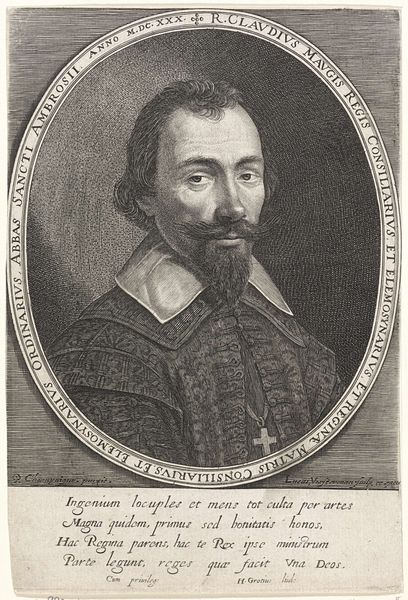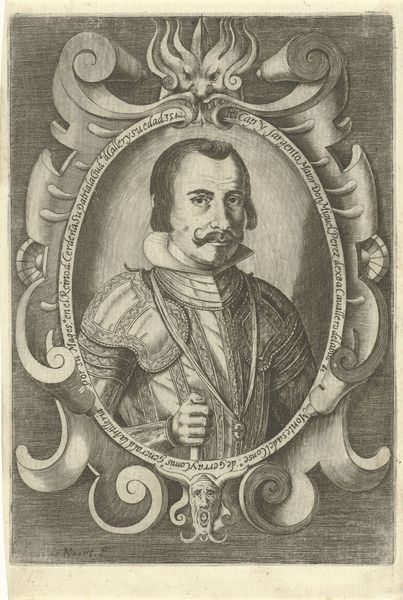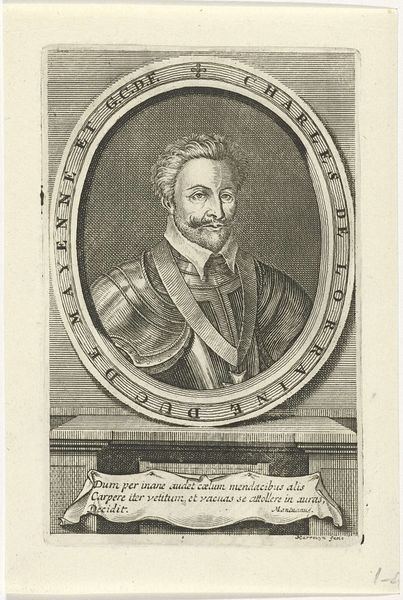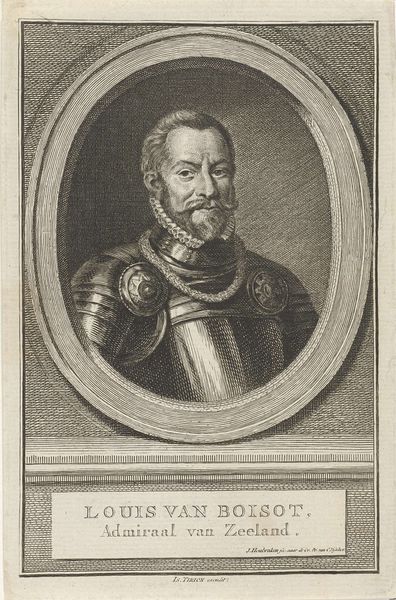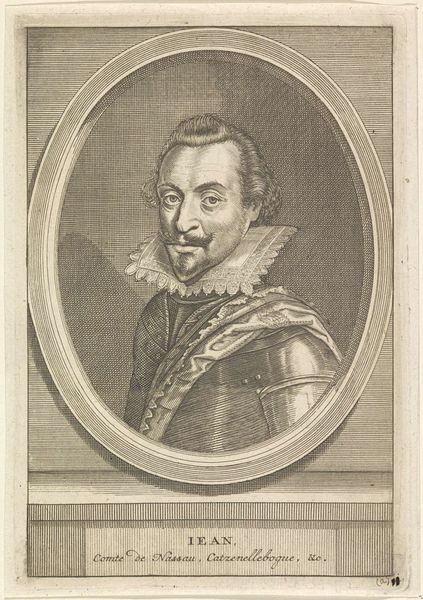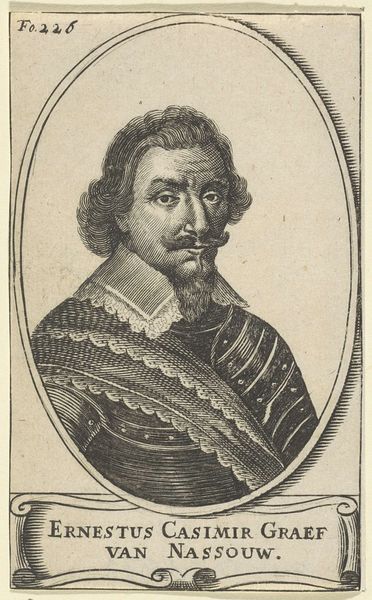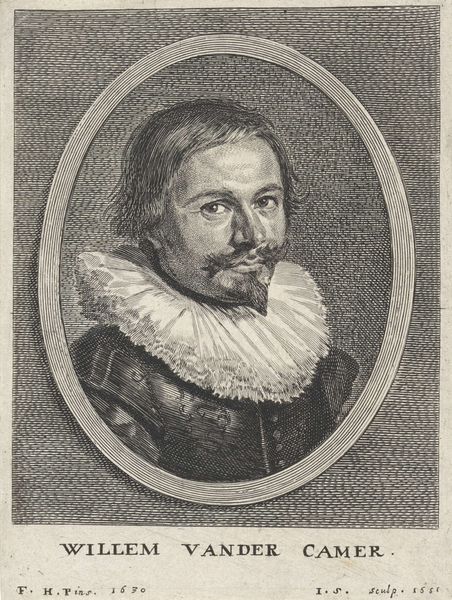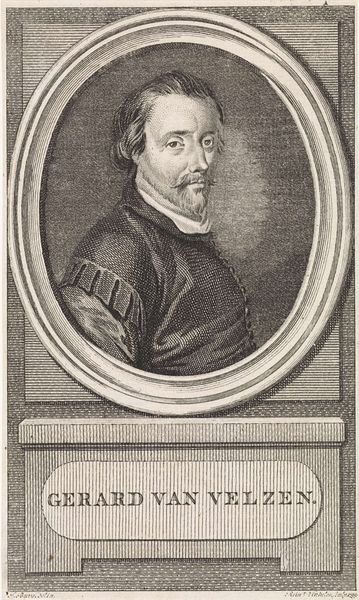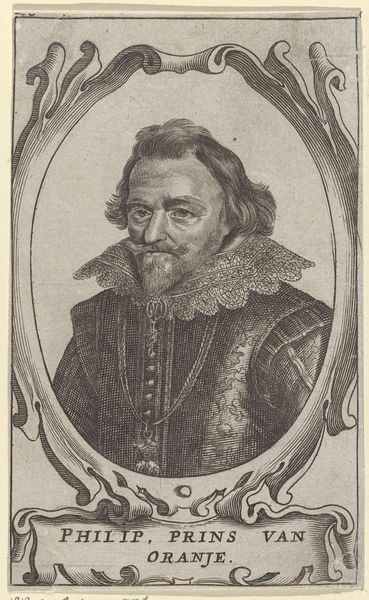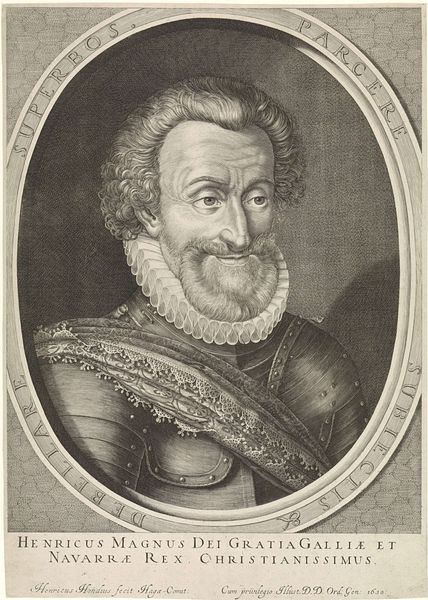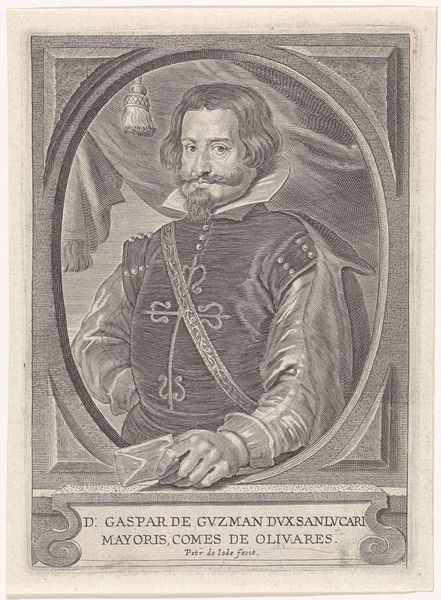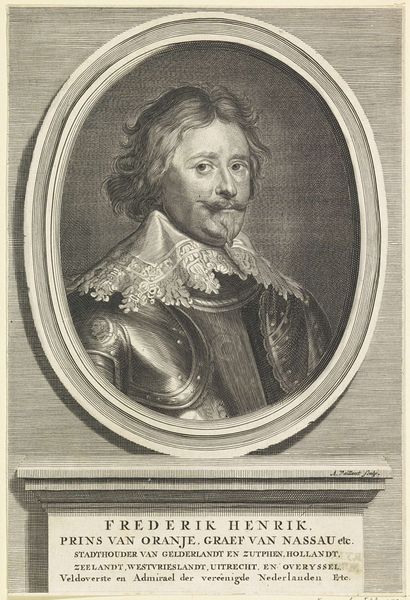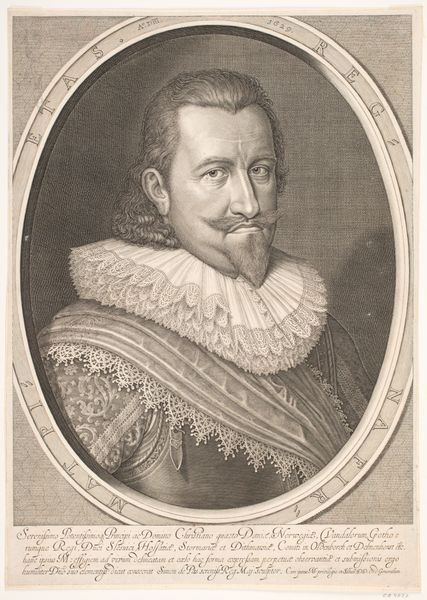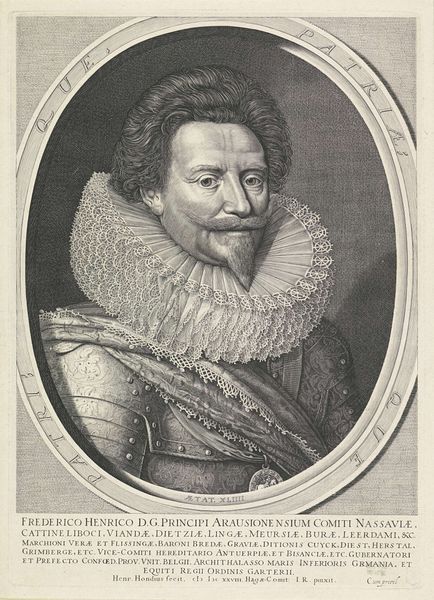
engraving
#
portrait
#
baroque
#
old engraving style
#
history-painting
#
engraving
Dimensions: height 147 mm, width 98 mm
Copyright: Rijks Museum: Open Domain
This is a portrait of Andreas de Broda, made by Gerard de Groos using engraving. Look closely and you’ll see it's built up from thousands of tiny lines, etched into a metal plate, then inked and printed. Engraving was a highly skilled craft, demanding years of training. The engraver used specialized tools to meticulously carve lines into the metal, controlling the depth and spacing to create tone and texture. The precision of the lines gives the portrait its crisp detail, capturing the likeness and character of the sitter. Consider the social context. Printmaking enabled the mass production of images, fueling the spread of information and ideas. Portraits like this one were often commissioned by the sitter, or by institutions, to commemorate individuals and project an image of authority. The act of engraving, therefore, was not merely a technical process, but a socially and culturally significant practice. It straddles the line between craft and art, demanding both technical skill and artistic sensibility.
Comments
No comments
Be the first to comment and join the conversation on the ultimate creative platform.
